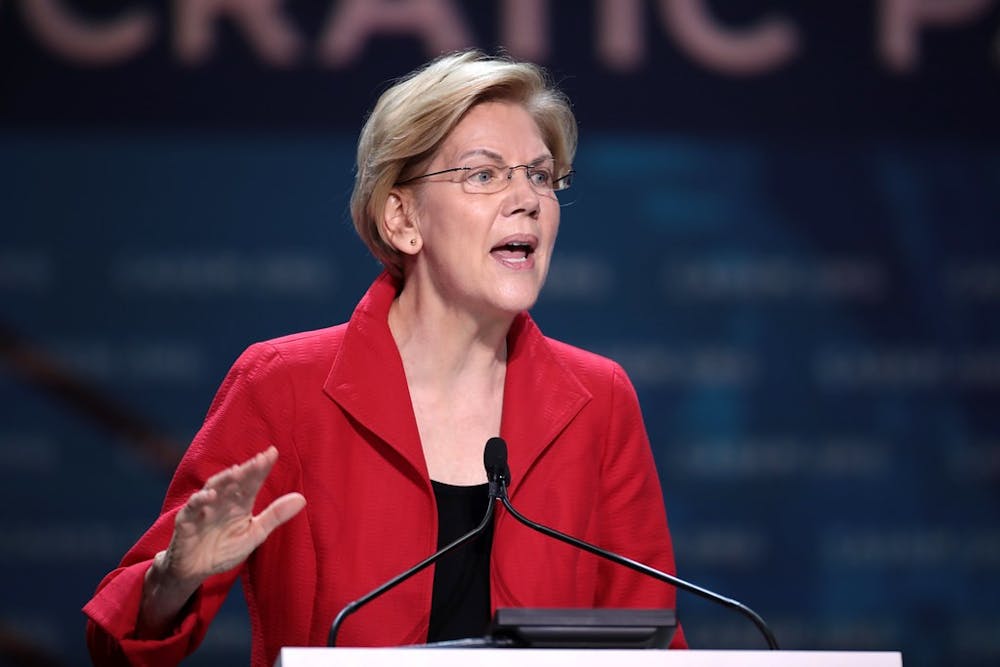
Senator Elizabeth Warren's (D-Mass) proposed "Ultra-Millionaire Tax" would require households to pay an annual 2% tax on every dollar of net worth above $50 million. (Photo by Gage Skidmore | CC BY-SA 2.0)
Senator Elizabeth Warren (D-Mass.) has big plans for her proposed wealth tax as she prepares her 2020 election campaign. Yet according to the Penn Wharton Budget Model (PWBM), the tax might inhibit economic growth.
The PWBM revealed that the tax could cause the nation’s annual economic growth to decrease by 0.2 percentage points each year over ten years if its revenues were used to decrease the federal debt, The New York Times reported. Based on their models, the researchers predicted that wealthy Americans would consume more and save and invest less to avoid the tax, causing annual economic growth to slow from an average of 1.5 percent to an average of just over 1.3 percent over a decade.
Warren's proposed "Ultra-Millionaire Tax" would require households to pay an annual 2% tax on every dollar of net worth above $50 million and a 3% tax on every dollar of net worth above $1 billion. Warren claims that the combination of her wealth tax and a new plan to tax investment gains would generate over $3 trillion over 10 years.
While Warren’s campaign worked with economists from the University of California, Berkeley to develop a plan for the tax, their assessments have been criticized for lacking a "dynamic analysis" that estimates how the tax would ripple throughout the national economy. Among some of the experts who have analyzed the wealth tax is Carey Law professor Natasha Sarin, who predicts the tax would raise much less funds than the Warren campaign predicts.
PWBM researchers previously analyzed the effects of President Trump’s tax cuts signed in 2017. According to that evaluation, the tax cuts would increase national economic growth by approximately 0.06 percentage points annually over the course of ten years. The new model from Penn Wharton predicts that Warren’s tax cuts would be three times more impactful than Trump’s tax cuts but in the opposite direction.
“Maybe if I were sticking $3 trillion under a mattress. But I’m not,” Warren wrote in a reply tweet to the Times article, adding that she plans to use revenues from the wealth tax to grow the economy by supporting universal childcare, investing in public schools, and canceling student loan debt.
Critics of the PWBM say the model ignores the full impact of the tax and does not account for Warren’s practical plans with the money, instead assuming that money will be used to reduce the national debt. According to the Times, the Wharton researchers defended their methods by saying that the Congressional Budget Office and the Joint Tax Committee, the official estimators for budget and tax proposals in Congress, use the same approach.
Director of policy analysis for the PWBM Richard Prisinzano, told Business Insider that the model is preliminary and a fuller study will be released next month.
The Daily Pennsylvanian is an independent, student-run newspaper. Please consider making a donation to support the coverage that shapes the University. Your generosity ensures a future of strong journalism at Penn.
Donate



